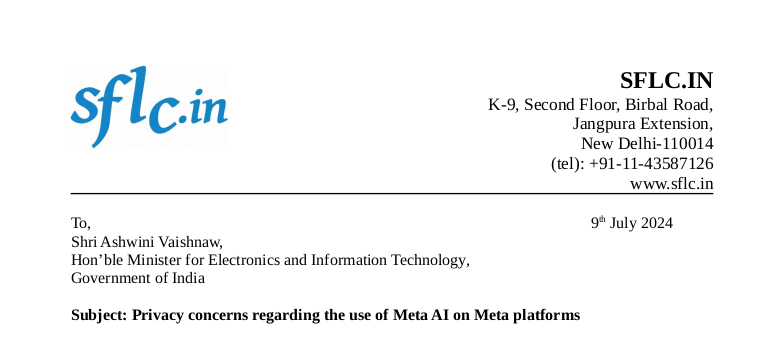This is a public interest writ petition under Article 32 read with Articles 14, 19 and 21 of the Constitution of India, seeking the formulation of an appropriate regulatory framework of Rules, regulations and guidelines for effective investigation of cyber crimes. The petitioner has also sought directions against the respondents to carry out widespread awareness campaigns regarding the various forms of cyber crime sought to be criminalized by the IT Act or any other penal law.
There is a near total lack of procedural safeguards in the prevalent system of cyber crime investigation. Police harassment of citizens, whether out of intention or ignorance, is rampant. There are several instances where the police and cooperating private entities have displayed great negligence and apathy towards innocent citizens. Conventional investigative methods unsuited to dealing with complex cyber crimes are nevertheless being followed, leading to police harassment of citizens. To illustrate this, the petitioner has placed his own case before the Court, where he was mistakenly accused of creating a false profile of a lady on Facebook. Even once the factual mistakes leading to the petitioner’s incrimination were made clear, the police refused to acknowledge them and proceeded with the case against him. Such cases of ignorance and gross negligence leading to false incriminations are not unheard of, as evidenced by the series of arrests under Section 66A, IT Act.
The Information Technology Act has provided that any police officer of the rank of sub-inspector can investigate cyber offences, but there are no criteria for training or knowledge for such officers in order to properly equip them to handle cyber crime, leading to harassment of citizens. In the absence of proper procedures for investigation and safeguards, citizens are even more vulnerable to police harassment. There is also no uniformity in cyber security control and enforcement practices.
Cyber crime by its very nature can be perpetrated in practically any location in the world. A cyber criminal can sit in one place and commit a crime the effect of which are felt elsewhere, or can malign the name or identity of another person located elsewhere, or even create the false impression that someone else has committed the crime. In such circumstances, it is very necessary that the investigating machinery should take care while investigating, particularly in light of the highly stringent provisions of the IT Act, which prescribe bailable but cognizable offences. The investigations are also dependent on intermediaries such as Internet service providers. There are no proper provisions to ensure accountability of intermediaries for their functions in aiding police investigations.
In light of the urgent need for clarity in investigative methods and procedures and the requirement of a proper regulatory framework for investigating cyber crime, the Petitioner has filed the present Petition under Article 32 and has raised substantial questions of law herein. He prays that:
-
A writ of mandamus, or a writ in the nature of a writ of mandamus, or any appropriate writ, order or direction be issued to the respondents to frame an appropriate regulatory framework of Rules, regulations and guidelines for effective investigation of cyber crimes, keeping in mind the fundamental rights of citizens
-
A writ of mandamus, or a writ in the nature of a writ of mandamus, or any appropriate writ, order or direction be issued to the respondents to carry out proper and widespread awareness campaigns particularly for investigating agencies,intermediaries such as internet service providers and the judiciary, regarding the various forms of cyber crime sought to be criminalized by the IT Act or any other penal law used to tackle cyber crime
-
Pending disposal of this petition, guidelines to be followed by the investigating agencies and the judiciary in handling cyber crime cases be issued, so that the Fundamental Rights of citizens can be protected from needless abuse by investigating agencies and intermediaries


